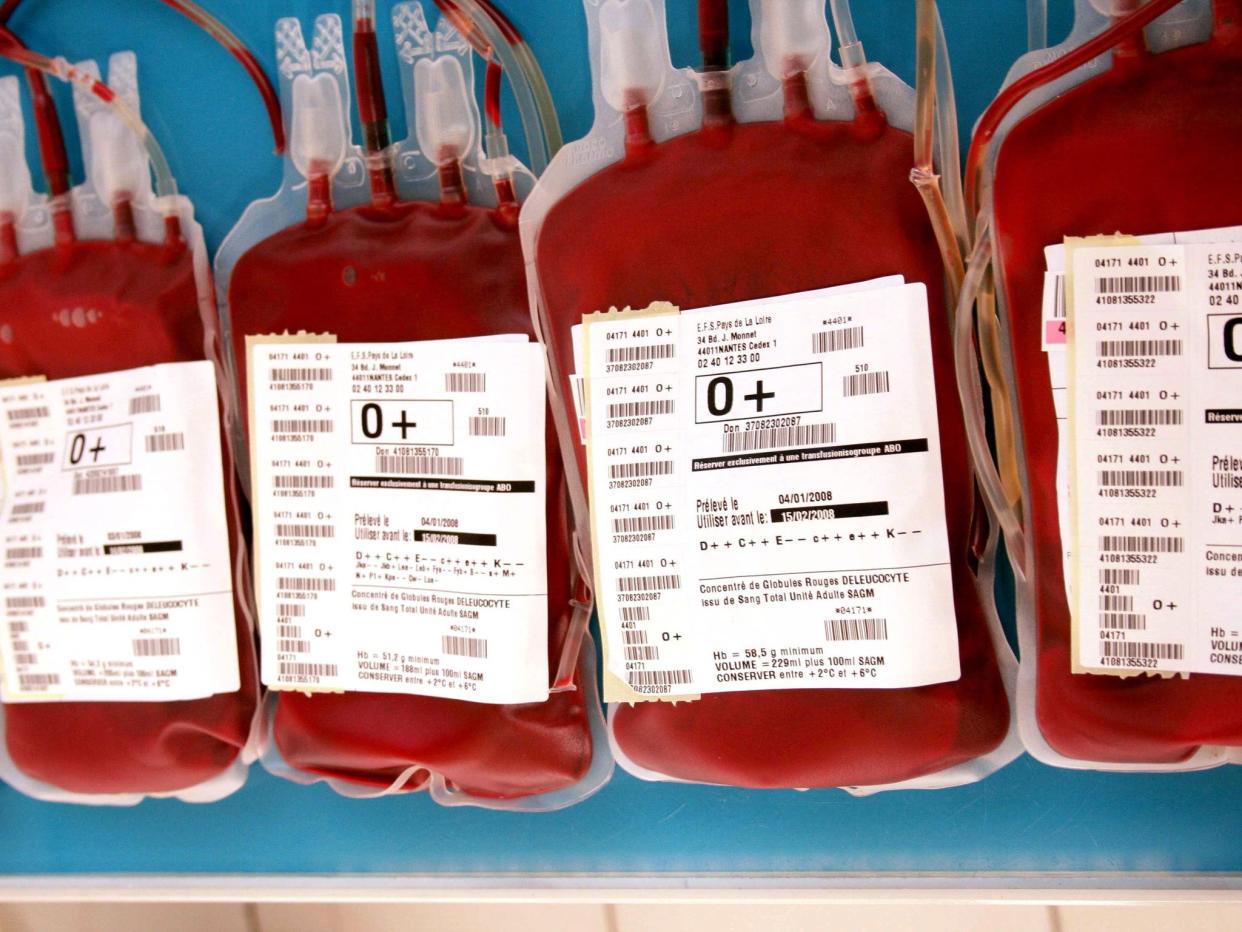Ban on UK blood plasma medications lifted 20 years after mad cow’s disease

Blood plasma from UK donors will be allowed to be used in medications for the first time since 1998
(Rex)A ban on using UK donated blood plasma in medical treatments brought in because of fears over the spread of mad cow disease has been lifted by ministers.
The Department of Health and Social Care said the change would mean the UK will no longer have to rely on imported plasma for the development of treatments known as immunoglobulins, which are used to treat cancer patients and other people suffering with weak immune systems.
The decision follows a review of evidence by experts on the independent Commission on Human Medicines which recommended the use of UK plasma could re-start. The overseas supply of plasma has been hit by a fall in donations and increased global demand.
Immunoglobulins could also prove effective against coronavirus with plasma from Covid-19 survivors being trialled as a treatment.
The ban was originally introduced in 1998 amid concerns over the spread of the human variant of Creutzfeldt Jakob Disease, or mad cow’s disease.
Since then the UK has been dependent on imported blood plasma from the USA to manufacture the medications but with an increase in global demand there have been pressures on supply. The Covid-19 pandemic has also hit donation levels.
The government said the change would mean the UK would be self-sufficient and it will impose a condition that plasma donated in the UK cannot be exported.
NHS Blood and Transplant collects around 350,000 litres of plasma each year, of which 100,000 is used for transfusion and the remaining 250,000 is discarded or not used to manufacture medicines.
As a result of the ban being scrapped the plasma from whole blood donations will be used to save lives and make medicines.
Stacey Garrity’s son Xander has XLA, a condition that reduces his immune system’s ability to fight infections. She said: “My son’s condition means he cannot make the antibodies he needs to protect him against infection and we rely on a lifesaving medicine called immunoglobulin to keep him well and healthy.
“Removing the ban on the use of UK plasma means the UK can start to become more self-sufficient in producing immunoglobulin products. This is a good thing for people like my son as it increases the security of supply of the treatment he relies upon to fight infection.”
The Medicines and Healthcare products Regulatory Agency (MHRA) reviewed the evidence on the safety of UK blood plasma for the manufacture of immunoglobulins last year.
Safety measures accompanying the lifting of the ban include the ability to trace donations from donor to patient and every medicine will be individually reviewed and evaluated by the MHRA.
Health minister Lord Bethell said: “Following expert advice, I am pleased we are now able to lift this ban to help thousands of NHS patients access these potentially life-saving treatments as quickly as possible.
“The move will also help England become self-sufficient and we will not have to rely only on imports from other countries, ensuring every NHS patient can always access the treatments they need.
“The safety of NHS patients remains our absolute priority and we have put in place robust precautionary measures to ensure every batch is safe.”
Read More
Ministers warned over new powers to control patient safety watchdog
All adults with learning disability to be offered Covid vaccine in priority u-turn
Ghana becomes first nation in world to receive UN Covax vaccines

 Yahoo Movies
Yahoo Movies 
